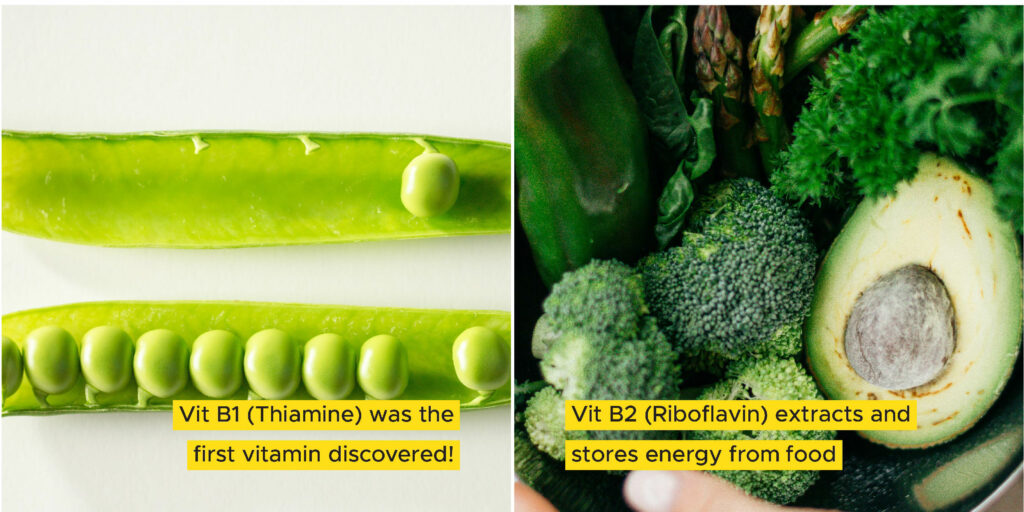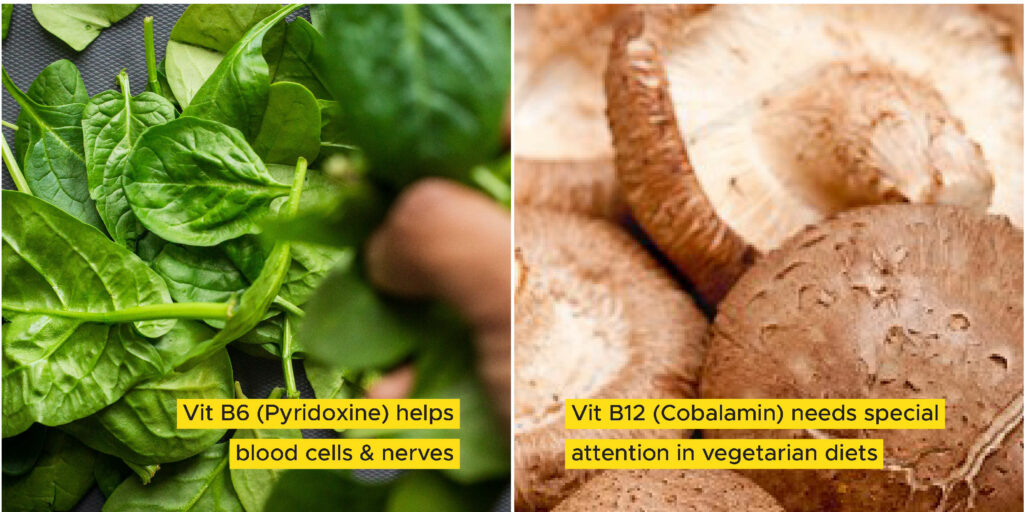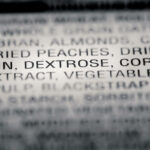VITAMIN B: COMPLEX? LET’S PAUSE BEFORE WE REACH FOR SUPPLEMENTS
Vitamin B: Complex? Let’s pause before we reach for supplements
- Published October 11, 2023
- Category Blog, Food Bulletin Newsletter
- Tags Food IQ, vitamin B

Vitamin A might make us think of carrots & tomatoes. The citrus image is instant with Vitamin C as is sunlight with Vitamin D. Maybe nuts and fish oil comes to mind with Vitamin E. And K? We don’t think of it at all!
But Vitamin B, arguably the most popular and critical, conjures up images of supplements and not food. So, let’s examine this Vitamin today and the easy ways to get it in our foods.
Vitamin B consists of a group of 8 micronutrients that work together. Vitamins B1 (Thiamine), B2 (Riboflavin), B3 (Niacin), B5 (Pantothenic acid), B6 (Pyridoxine), B7 (Biotin), B9 (Folate) and B12 (Cobalamin). These are all water soluble, so they are flushed out of our system and need to be replenished daily. While these 8 are distinct chemicals they occur together in foods.
These 8 tend to be co-enzymes or precursors to co-enzymes and are necessary for the metabolism of carbohydrates, fats and proteins, DNA production, red blood cell and neurotransmitter creation etc.

Vit B1 (Thiamine) was the first vitamin discovered!
B1 is crucial for maintaining the nervous and cardiac systems. It breaks down complex food into easily available energy forms for the body to function. Deficiency of B1 can lead to fatigue, appetite loss, anaemia, mouth ulcers. Thiamine is water soluble and easily found in foods like flax seeds, beans, green peas, tofu, brown rice, beets, oranges, oats. It’s important to avoid overcooking these veggies, to retain the Thiamine.
Vit B2 (Riboflavin), extracts and stores energy from food
This ‘energy vitamin’ processes & converts nutrients in food into fuel for the body. It’s stored in small amounts in the tissues, so must be replenished daily. Fortunately, the sources of B2 are regular foods like asparagus, avocados, cruciferous veggies, beans, mushrooms, pumpkins, sweet potatoes, nuts, whole grains. It’s water soluble, so steam rather than boil the veggies to avoid B2 loss. Including these foods daily is important to avoid chronic fatigue & inflammation.

Vit B6 (Pyridoxine) helps blood cells & nerves
B6 is involved in more than 100 biochemical reactions, most notably the production of hemoglobin (red blood cells). B6 is also required for the production of neurotransmitters important for normal cognitive function. The efficacy of B6 is best when combined with magnesium. So, reach for foods like spinach – 1 cup cooked provides about 30% daily requirement of both magnesium and B6. Bananas, avocados, pistachios are also good sources.
Vit B12 (Cobalamin) needs special attention in vegetarian diets
Although B12 is needed in minute amounts (2.4 mg for adults), it’s extremely important for nerve and blood health and also to make DNA, the genetic material of all our cells. Deficiency causes fatigue, anaemia, digestive disorders. It’s not easily found in plants, so vegetarians & vegans must make extra efforts to include B12. Best sources are tempeh, nori, dairy, dried shiitake mushrooms and foods fortified with this vitamin.






